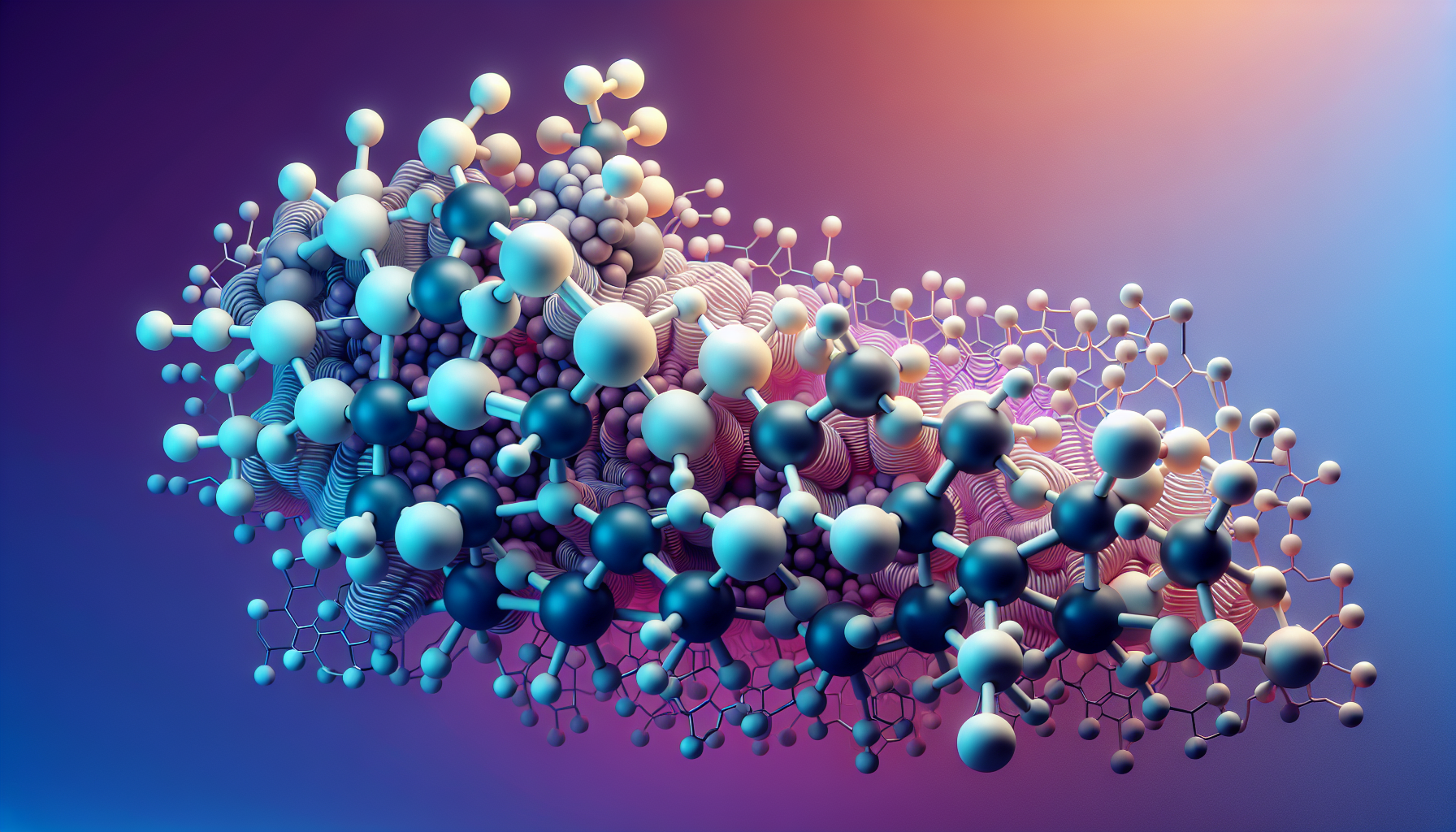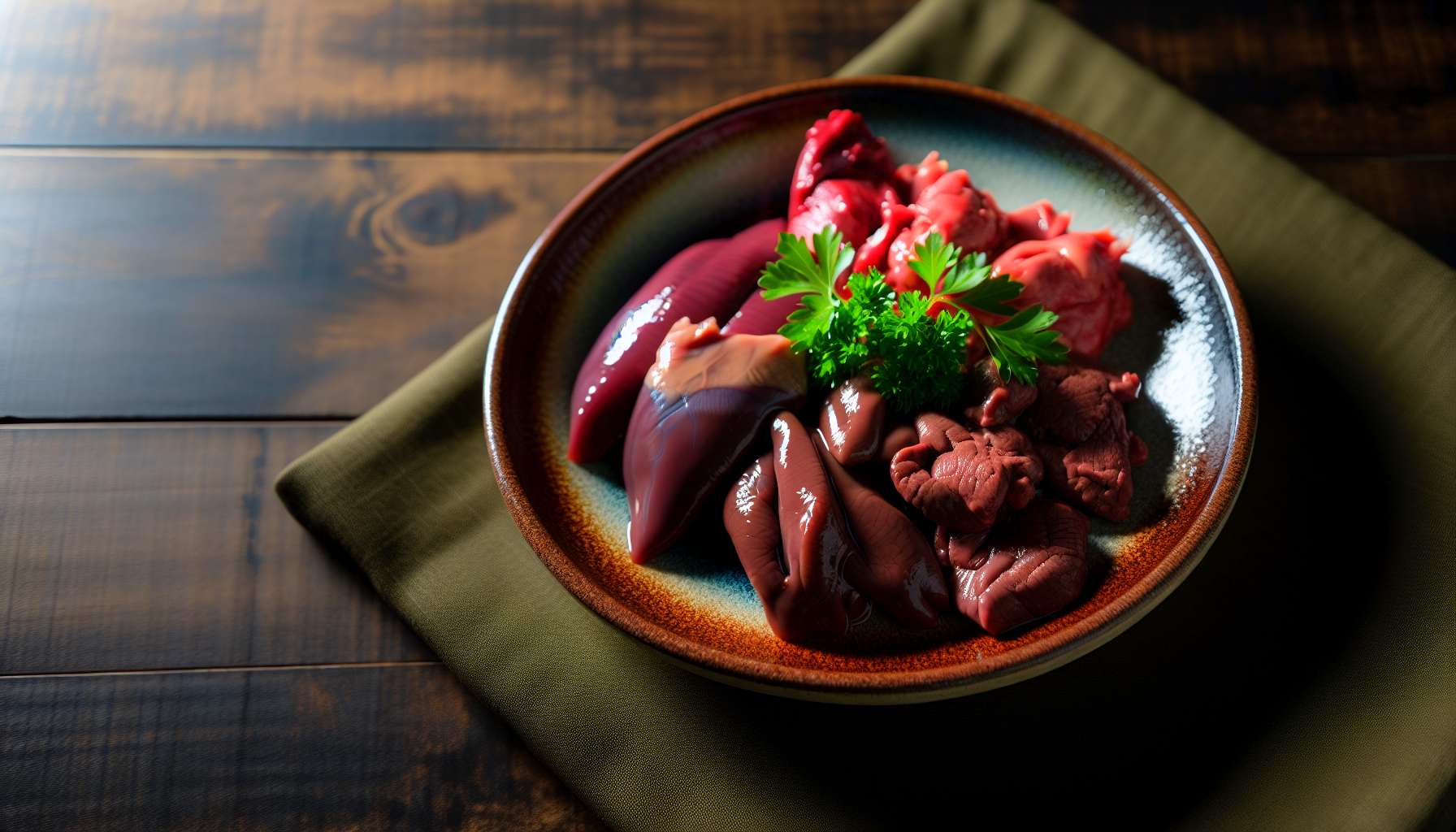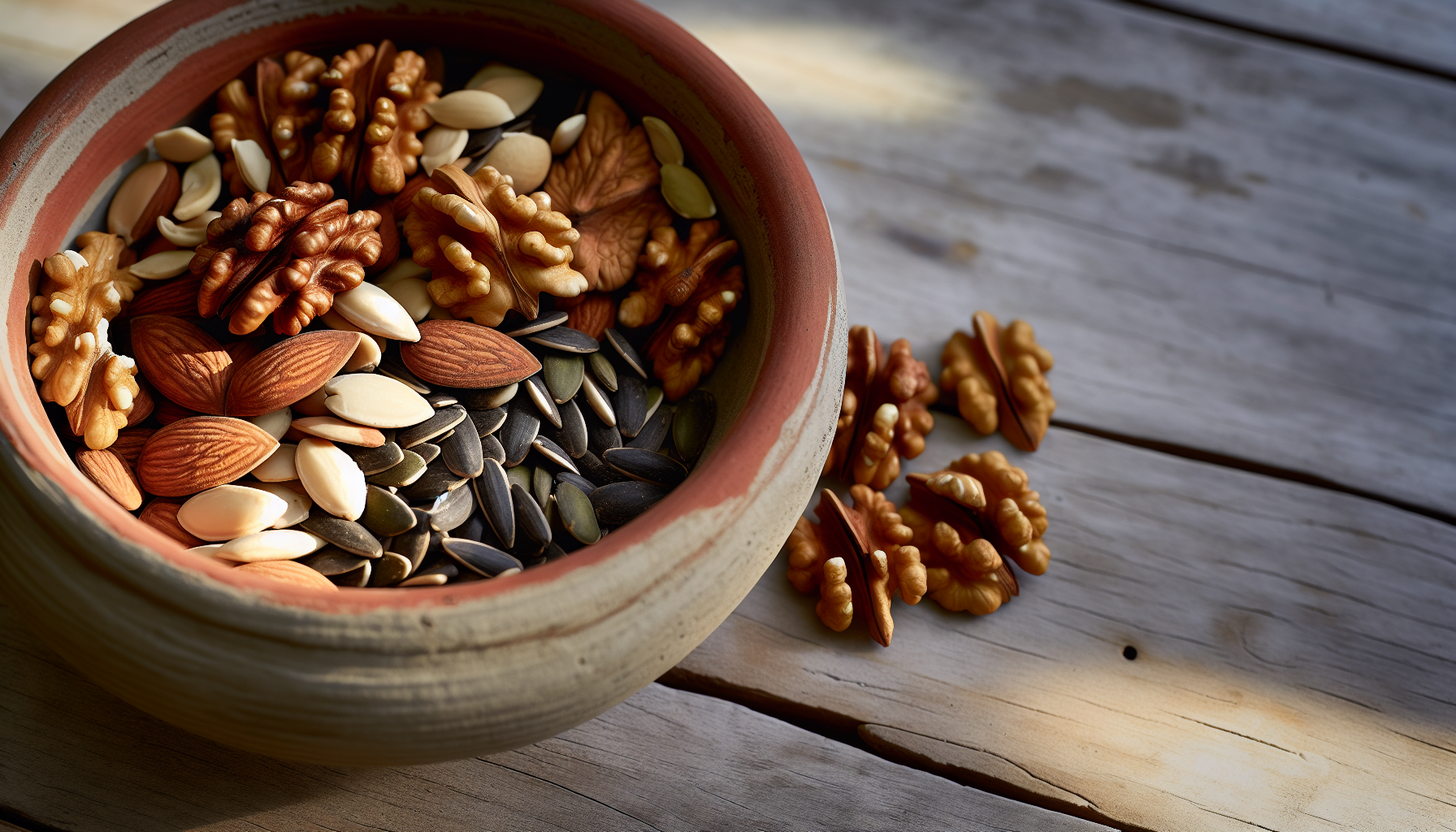So, what is the best source of Coenzyme Q10 (CoQ10) for maintaining optimal health? Understanding where to find this vital nutrient is paramount in the quest for sustained energy levels and robust well-being. In this comprehensive article, we dive into the world of CoQ10, exploring its critical role in energy production, antioxidant properties, and support for cardiovascular and immune health—especially pertinent as these may decline with age, necessitating increased dietary intake or supplementation.
Diverse dietary sources of CoQ10 await exploration, from nutrient-rich organ meats to the omega-3-packed bounty of oily fish. But the journey doesn't stop there. We'll also uncover the significance of certain nuts, grains, and plant-based options in delivering this essential compound. Moreover, we'll dissect the nuances of CoQ10 supplements, examining the differences between ubiquinol and ubiquinone and how they measure up against dietary intake. Whether navigating chronic diseases, exploring complementary and integrative health approaches, or simply striving for overall wellness, this article equips you with practical insights to make informed choices about your CoQ10 intake. So, join us as we unravel the mysteries of Coenzyme Q10 and embark on a journey towards enhanced vitality and well-being.
Key Takeaways
- Coenzyme Q10 plays a critical role in energy production, acts as an antioxidant, and supports cardiovascular and immune system health, which may decline with age and necessitate increased dietary intake or supplementation.
- Dietary sources of Coenzyme Q10 are diverse, with organ meats, oily fish, and certain nuts and grains providing substantial amounts, and the presence of dietary fats can influence bioavailability.
- Coenzyme Q10 supplements, available as ubiquinol and ubiquinone, may help manage chronic diseases and potentially counteract the side effects of statin drugs. However, interaction with medications and individual health profiles requires consulting healthcare professionals.
Understanding CoQ10: A Vital Nutrient for Energy and Health

CoQ10 has several vital functions in the body:
- It acts as a lipid antioxidant, protecting against oxidative damage to proteins, lipids, and DNA.
- It regenerates other antioxidants, such as vitamin E.
- It plays a crucial role in energy production, being part of the mitochondrial oxidative respiratory chain responsible for ATP production, which is the energy currency of cells.
In addition to its function in energy production, CoQ10 also significantly supports cardiovascular health. It:
- Enhances blood flow
- Safeguards blood vessels
- Stimulates the production of antioxidants like superoxide dismutase
- Prevents LDL cholesterol oxidation, thus protecting against atherosclerosis.
Organs with high energy demands, like the heart, lungs, liver, kidneys, and pancreas, contain the most coenzyme Q10. However, as we age, these levels naturally decline. This decline suggests that older populations may need to increase their intake of this vital nutrient.
Furthermore, CoQ10 bolsters the immune system and enhances immune function due to its energy-dependent actions on tissues and cells. A deficiency in this nutrient can lead to decreased cellular efficiency and dysfunction in the respiratory chain.
Top Dietary Sources of CoQ10

Maintaining optimal levels of CoQ10 could be as simple as adjusting your dietary habits. Several food sources teem with this powerhouse nutrient, providing various options for different dietary preferences.
Organ Meats: Nature's Powerhouse
Organ meats, including those from beef, pork, chicken, and fish, are rich in coenzyme Q10. These vital organs vastly outstrip other food sources regarding their CoQ10 content due to the abundant rich cells in this compound.
Beef heart, for instance, is packed with CoQ10, offering a content of 11.3 milligrams per 100 grams. Chicken hearts and livers are not far behind, with the liver providing 11.6 milligrams per 100 grams.
These meaty powerhouses contribute significantly to overall health and brain function. Their richness in CoQ10, a nutrient necessary for energy production and antioxidant protection, makes them an essential part of a balanced diet.
It’s necessary to moderate organ meat consumption, considering its high cholesterol content. Always consider food safety and ensure that organ meats are cooked thoroughly to prevent potential foodborne illnesses.
The Benefits of Oily Fish
Despite organ meats being a top source, they’re not the only means to get CoQ10. Oily fish, such as trout, salmon, and mackerel, offer substantial amounts of this nutrient.
Mackerel, for instance, provides about 6.75 milligrams of CoQ10 per 100 grams, while trout offers a smaller but still significant amount of 0.85 milligrams per 100 grams.
Oily fish stand out for their added benefits to heart health, including helping to manage high blood pressure. These fish are rich in omega-3 fatty acids, compounds known for their cardiovascular benefits. They:
- Lower blood pressure
- Reduce triglyceride levels
- Slow the development of plaque in the arteries
- Help reduce the likelihood of heart attack and stroke.
Incorporating oily fish into your diet increases your intake of coenzyme Q10 and contributes to a heart-healthy diet, making them a beneficial food choice all around.
Whole Grains and Nuts: Plant-Based Options
Plant-based options rich in coenzyme Q10 are also available for those on vegetarian or vegan diets. Nuts, seeds, and soybeans are excellent sources of this nutrient.
Pistachios, for instance, contain 2 milligrams of CoQ10 per 100 grams and are known to contribute to heart and gut health. Peanuts provide a slightly higher amount of CoQ10 at 2.6 milligrams per 100 grams.
Boiled soybeans, a versatile legume, contain 1.2 milligrams of CoQ10 per 100 grams. This provides those following vegetarian and vegan diets with an additional nutrient source.
Incorporating these plant-based options into your diet boosts your intake of coenzyme Q10 and contributes to a balanced diet rich in other essential nutrients.
Coenzyme Q10 Supplements: Ubiquinol vs Ubiquinone

Supplements, or dietary supplements, are an alternative to dietary sources for boosting CoQ10 intake. CoQ10 supplements are available in two forms: ubiquinol and ubiquinone, each offering its own unique benefits.
Ubiquinol is considered more bioavailable than ubiquinone. Deemed ‘body ready,’ it is the form predominantly transported in the bloodstream, offering immediate uptake and faster absorption. The body can convert ubiquinone to ubiquinol, facilitating absorption as part of its natural processes.
While both forms effectively restore CoQ10 levels, ubiquinol may be preferable for addressing established health concerns. This is particularly true in older adults, where the body’s ability to convert CoQ10 to ubiquinol declines.
Nevertheless, the formulation of CoQ10 supplements significantly impacts their bioavailability. CoQ10 crystals should be dispersed and delivered in water-soluble forms to optimize the increase of CoQ10 levels in the bloodstream.
For those eager to delve deeper into the nuances of ubiquinol versus ubiquinone and their respective benefits, we invite you to explore our review article, "Exploring the Benefits: Why Is Ubiquinol Better Than CoQ10 for Enhanced Health?" This comprehensive resource explores the science behind these two forms of CoQ10, providing valuable insights for those seeking to optimize their health journey. Click here to look into this article; it will unlock a wealth of knowledge that will help you discover which form of CoQ10 best suits your needs.👇
How Statin Drugs Influence Coenzyme Q10 Levels
The relationship between CoQ10 and statin medications is quite intriguing. Statins, while effective in lowering cholesterol levels, can also lower the levels of CoQ10 in the body. This reduction may contribute to side effects such as fatigue.
Statin-induced muscle-related side effects range from mild myalgia (muscle pain) to severe rhabdomyolysis (a condition that can lead to kidney damage). This is potentially due to the depletion of CoQ10.
While CoQ10 supplementation has shown mixed results in alleviating statin-induced myalgia, it’s important to note that some studies do report diminished symptoms. However, current hypotheses suggest that statin-induced myalgia may be associated with depleted muscle CoQ10 levels and impaired mitochondrial function.
Nonetheless, consultation with a healthcare provider is necessary before starting CoQ10 supplementation for those on statin medications. It’s essential to understand how these two substances interact and to assess the potential benefits and risks.
The Role of CoQ10 in Chronic Diseases
Beyond being a nutrient, CoQ10 actively manages health conditions, including chronic diseases such as cardiovascular disease. Heart failure, hypertension, and chronic kidney disease are all conditions where CoQ10 has shown promise.
CoQ10 supplementation has been found to improve symptoms and functional parameters in congestive heart failure. It also reduces hospitalizations and enhances exercise capacity. The Q-SYMBIO study, a rigorous clinical trial, demonstrated that CoQ10 supplementation significantly reduced major adverse cardiovascular events among patients with chronic heart failure.
The benefits of CoQ10 aren’t limited to heart health. Patients with chronic kidney disease often exhibit lower plasma levels of CoQ10. Supplementation has been associated with improvements in cardiac function and metabolic profile.
Moreover, CoQ10 supplementation may benefit lipid profiles, inflammation, and insulin resistance, essential factors for blood sugar control. These are particularly pertinent in managing type 2 diabetes mellitus and nonalcoholic fatty liver disease.
Maximizing Absorption of CoQ10

Several considerations can help maximize the benefits of your CoQ10 intake. CoQ10 is absorbed better when ingested with lipids due to its lipophilic nature. Fatty foods stimulate bile release into the intestine, improving the absorption of fat-soluble compounds like CoQ10.
For optimal absorption, CoQ10 supplements should be suspended in high-quality oil. Adding solubility enhancers such as BioPerine® (a black pepper extract) is also beneficial. Moreover, the body’s finite capacity to absorb CoQ10 in a single dose suggests that divided doses may result in better serum levels than a single large dose.
CoQ10 generally exhibits a low absorption rate due to its fat-soluble nature. Less than 5% of orally administered CoQ10 reaches circulation. Therefore, maximizing absorption is key to getting the most out of your intake of this nutrient.
The Impact of Coenzyme Q10 on Exercise and Muscle Health
Besides its function in energy production and antioxidant protection, CoQ10 may also enhance exercise performance and muscle health. It is a crucial cofactor in the mitochondrial respiratory chain, likely providing energy for muscle contraction during exercise.
CoQ10 is recognized for its powerful antioxidant properties, scavenging reactive oxygen species in the mitochondria and lipid membranes. This may help protect muscles from oxidative stress incurred during intense physical activity.
Supplementation with CoQ10 can potentially hasten recovery from exercise-induced fatigue and prevent muscle damage. Some reports even suggest enhanced peak power production in trained athletes.
Although the benefits of CoQ10 on exercise performance and muscle health are promising, research suggests that the results are not consistently reported across all studies, including randomized controlled trials. Therefore, there’s a need for a systematic review and further targeted research to strengthen the scientific evidence.
Safety and Interactions: What You Need to Know
When considering its use, it is crucial to understand the safety profile and potential interactions of CoQ10. Coenzyme Q10 has a low toxicity profile and does not induce serious adverse effects in humans. The acceptable daily intake is 12mg/kg/day, with an observed safety level of 1200 mg/day from clinical trials.
Reported side effects of CoQ10 include:
- Nausea
- Diarrhea
- Appetite suppression
- Heartburn
- Abdominal discomfort
However, these side effects are minor and rare, with no significant adverse side effects reported at doses up to 1,200 mg/day for up to 16 months.
Remember that CoQ10 might lessen the anticoagulant effect of blood thinners such as warfarin. Therefore, careful supervision by a healthcare provider is necessary. Pregnant and breastfeeding women should also exercise caution, with supplementation being safe during pregnancy after 20 weeks but avoided during breastfeeding.
The bottom line is that it’s recommended to consult a healthcare professional to evaluate individual needs, especially when considering complementary and integrative health approaches. This is particularly important when considering a higher dosage of CoQ10 or integrating it into a routine with certain medications.
Wrapping Up Our Exploration of the Best Sources of CoQ10!
In conclusion, Coenzyme Q10 (CoQ10) stands as a crucial nutrient for sustaining energy levels and safeguarding against oxidative damage. Whether sourced from organ meats, oily fish, or plant-based alternatives, a diverse array of foods can aid in maintaining optimal CoQ10 levels, bolstering overall health and vitality. Supplements present an alternative avenue for those needing a boost, with ubiquinol emerging as the preferred choice due to its superior bioavailability. Nonetheless, it's imperative to exercise caution, as CoQ10 supplementation may interact with certain medications, underscoring the importance of consulting with a healthcare professional beforehand. For further exploration into CoQ10 supplementation, our article "From Heart Health to Energy Boost: Finding the Best CoQ10 Supplement for You" offers a curated selection of top-quality products, ensuring informed choices for optimal health. Check that article out here.👇
Frequently Asked Questions
What vitamin should not be taken with CoQ10?
Avoid taking CoQ10 with vitamin D, as they are both fat-soluble supplements that are best taken separately to ensure proper absorption.
Why don't doctors recommend CoQ10?
Doctors don't recommend CoQ10 for patients on blood thinners because it can make these drugs less effective, increasing the risk of blood clots.
What is the best form of coenzyme Q10?
The best form of coenzyme Q10 is ubiquinol, as it is more effectively absorbed than ubiquinone, the most common form of CoQ10 supplements. It's recommended to consume it alongside dietary fat for optimal absorption.
What food is highest in CoQ10?
Foods such as reindeer, organ meats, and oily, fatty fish are the highest in CoQ10. They include beef, pork, chicken, and fish hearts.
What is coenzyme Q10?
Coenzyme Q10, also called ubiquinone, is an essential nutrient for energy production and antioxidant protection in the body, mainly concentrated in high-energy demanding organs.
Thanks for exploring this simple question: "What is the best source of Coenzyme Q10?" Also, if you want to add to your library of knowledge, you should check out the other articles mentioned and linked above. It never hurts to add to your knowledge arsenal!
Please return soon to check out our next review of another incredible supplement – we’re always looking out for YOU!
*We are NOT qualified medical advisors. The content here is only based on our personal opinions and should NOT be used as a substitute for a healthcare professional's advice!











Member discussion